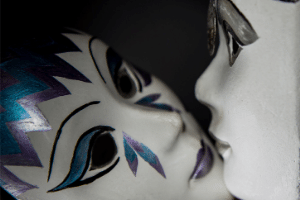Identity
How to Be Yourself in a Relationship
Lose the fear, not your identity.
Posted November 28, 2020 Reviewed by Lybi Ma

For some people, a new relationship is both exciting and terrifying. It usually begins well, but very soon, you start to feel a bit lost.
Your friends might notice you act a little differently around your partner.
You yourself notice you’re not quite as happy as you think you should be—especially if this person could be the love of your life.
You’re just not the relaxed, carefree version of yourself that you wanted to bring to the relationship.
You find yourself managing your interactions. Should you respond to a text right away, or make your partner wait for a response? You wonder what your behavior says about you.
Should you tell your new squeeze how you really feel about his favorite series on Netflix, or pretend you like it too?
Don’t lose your identity by over-focusing outside yourself. Instead, try the following tips to stay grounded in your relationship:
1. Think first about yourself, then about your partner.
Hopefully it’s obvious that this advice is only for those who get too caught up in their partner’s experience at the expense of their own—folks who barely notice how they feel about anything because their attention is always on the other person.
If this is you, practice checking in with yourself *before* paying attention to your partner.
2. Be authentic.
Don’t second-guess your feelings and behavior. Without trying to hurt your partner, insist on behaving in a way that’s true for you, based on your own feelings and needs.
If your partner does something that bothers or confuses you, don’t play the role of The Perfect Partner Who Never Complains. Speak up; ask questions. You're a full partner, not an employee or a fan.
If your relationship’s success is based on how well you pretend not to be upset by anything your partner does, it’s not much of a relationship.
3. Take some risks.
Be vulnerable and honest with your partner. Part of why you feel lost may be that you’ve been unconsciously hiding your real self.
If your partner rejects you based on what you share with her, it will hurt. But you’ll find out you’re incompatible (or that she’s cruel) sooner rather than later. Then you can move on and find someone who will love those vulnerable parts of you.
The fact that you tend to lose yourself in relationships won’t change by itself, or because you find the right partner.
But it’s also not something you have to learn to live with. By taking the bold steps above, you can break the pattern. It’s entirely up to you.


